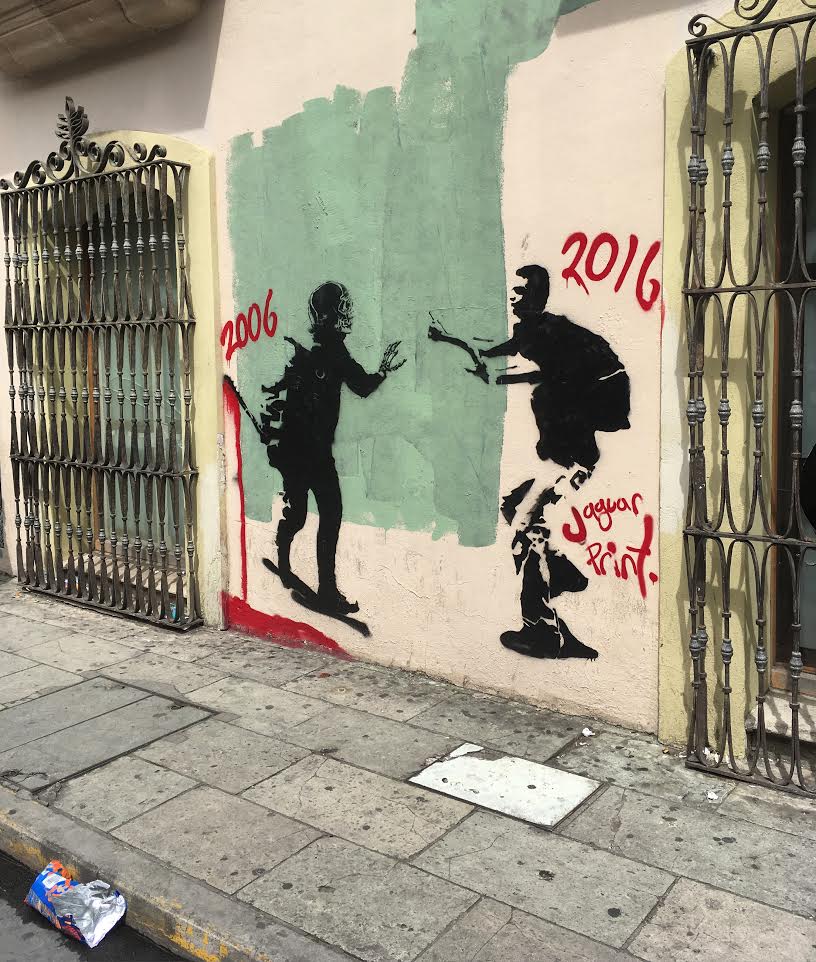Mexico’s Classroom Wars
Striking Mexican teachers are fighting for justice in the classroom — and against Mexico’s violent neoliberal order.

2006–2016. Street graffiti in Oaxaca City, commemorating the ongoing teachers’ struggle. Shane Dillingham / Jacobin
Our new issue, “Between the Risings,” is out now. To celebrate its release, international subscriptions are $25 off, and limited prints of our Easter 1916 cover are available.
Ten years ago, as a group of striking teachers slept in their encampment during the early hours of June 14 in the state capital of Oaxaca, Mexico, government forces launched an attack to remove them from thezócalo, or town square. Riot police cleared the plaza while helicopters dropped tear gas from above.
The striking teachers were beaten, arrested, and pushed out of the city center. But not for long; the teachers and their supporters quickly regrouped, fighting back, block by block, and took the plaza back by midday.
The violent repression of striking teachers in 2006, ordered by the state governor, launched a social movement — called the “Oaxaca Commune” by supporters — that grew to encompass much more than the local teachers’ union.
The movement mobilized large swathes of Oaxacan society against the repressive governor. Aggressive federal intervention hobbled the movement, but failed to wipe it out. Today the dissident teachers’ movement is in the streets again, this time in opposition to the federal government’s “education reform” program.
The teacher’s movement is also more widespread than in 2006. Militarized attacks on striking teachers have occurred in Mexico City and throughout the country’s southern states. In the last month, the state of Chiapas has seen pitched battles between teachers and police forces, and the Zapatistas have spoken out in favor of the striking teachers.
Last week the Mexican attorney general’s office arrested two of the leaders of the Oaxacan section of the teachers’ union, Local 22, on corruption charges. Then on June 19, federal and state police attacked protesters in Nochixtlán, Oaxaca, a town on the highway between the state capital and Mexico City, resulting in the death of at least eight protesters.
The blatant attack on outspoken government opponents unleashed a Mexico’s Classroom Wars | Jacobin:
